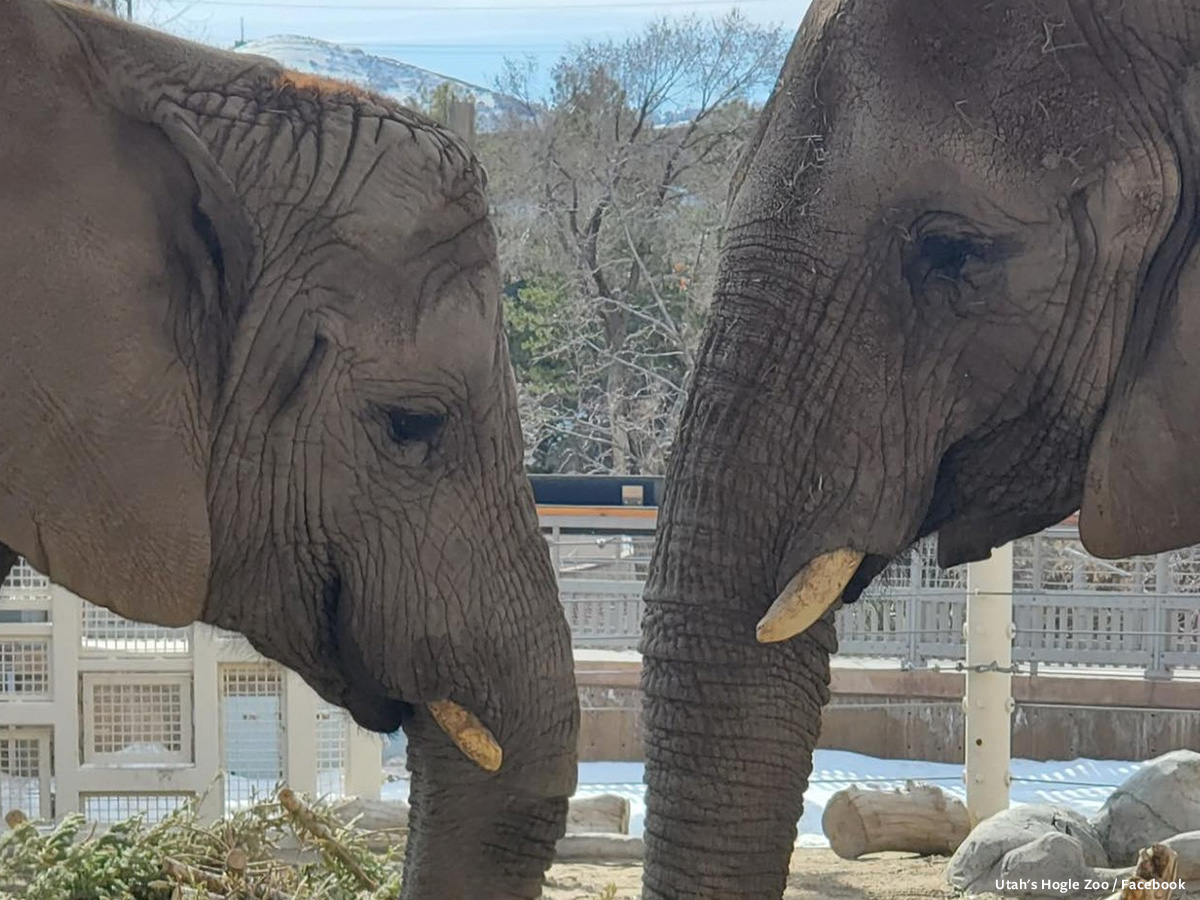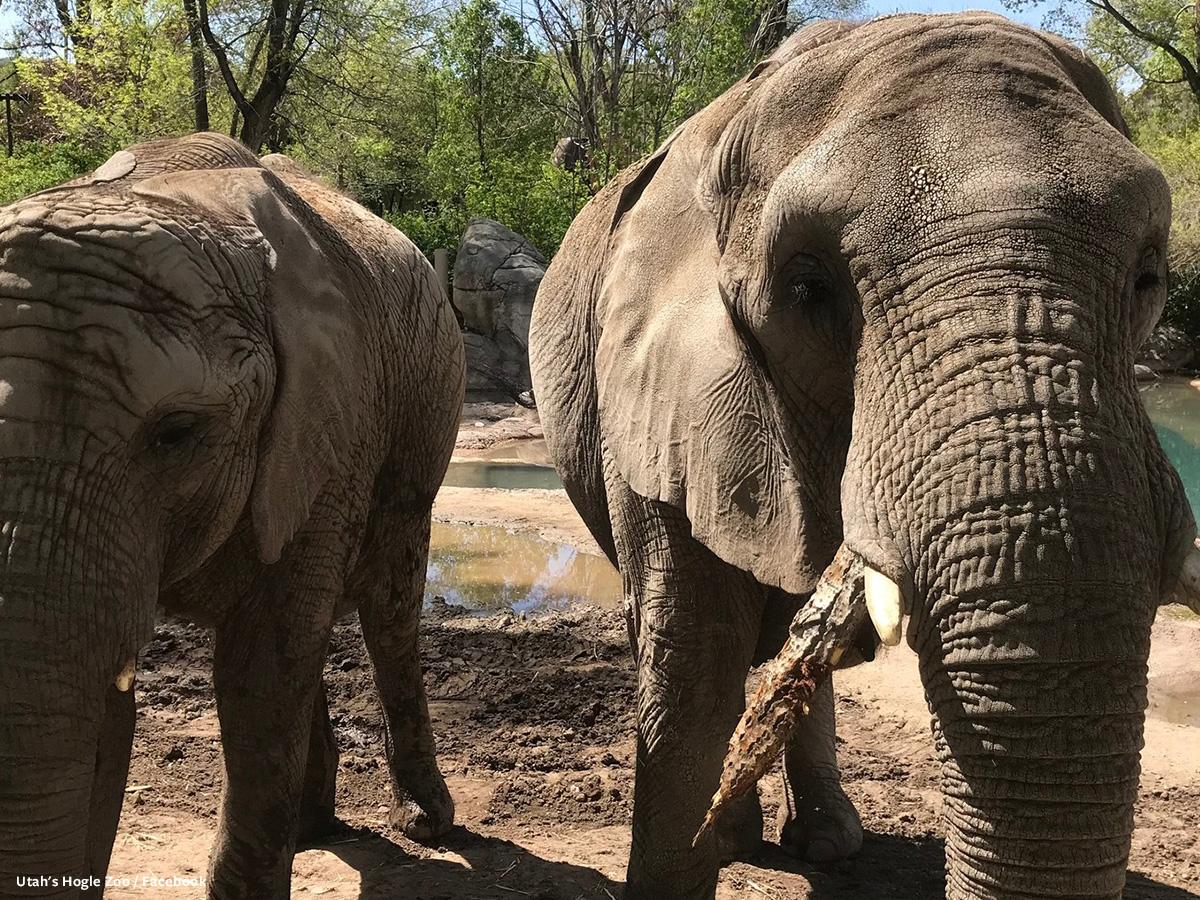Hogle Zoo Will “Pause” Its Elephant Exhibit, But Has No Plans to Send Its Elephants to Sanctuary
You may be aware that this fall, Hogle Zoo in Salt Lake City, Utah, will finally be closing its elephant exhibit, making it the thirty-fourth zoo to do so. When asked, the zoo stated that it is very unlikely it will ever get elephants again, but the fight isn’t over to send its mother-daughter duo Christie and Zuri to a sanctuary instead of another zoo.
While In Defense of Animals enthusiastically supports the decision to close the elephant exhibit, at the same time we urge the zoo to declare its decision as permanent and to also send its elephants to a reputable sanctuary and not another zoo. We are deeply concerned with this statement from the zoo “The ultimate choice to move Christie and Zuri is to provide them both the best chance to have a calf during their prime reproductive years and benefit from the important social dynamic of a multigenerational herd.” The zoo is seemingly unconcerned by the high number of deaths of young elephants from elephant endotheliotropic herpesvirus (EEHV), and in fact, claims that the rationale for risky breeding is to produce calves who can help with research on a vaccine to cure this often fatal disease. So the risk of early death is just “the price they have to pay” for this research, which so far in over two decades has not produced any positive results.

The Hogle Zoo has appeared twice on our 10 Worst Zoos for Elephants list, in 2019 and 2020.
It earned that placement on the list for violating the Association of Zoos & Aquariums (AZA) regulation to house at least three elephants together and for its elephant encounter program that allowed young children to be in close proximity to elephants which is unsafe.
In response, nearly 10,000 In Defense of Animals supporters urged the Hogle Zoo to shut down its elephant exhibit.
You can still help by calling, posting on social media, and signing and sharing our most recent alert telling the Hogle Zoo to do the right thing for Christie and Zuri and send them to a sanctuary, where they can live out their lives in a peaceful, spacious setting and never have to be displayed or be exploited for a misguided and deadly breeding program.


